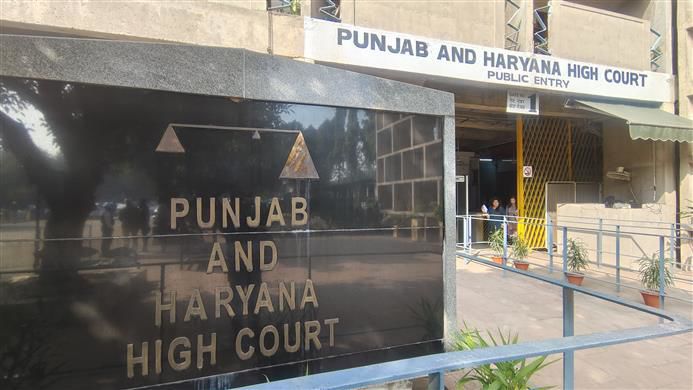Can’t shirk responsibility to make arrangements for sewage treatment, Punjab and Haryana High Court tells State of Punjab
Saurabh Malik
Chandigarh, July 29
The Punjab and Haryana High Court has made it clear that the State of Punjab cannot shirk its responsibility to make appropriate arrangements for sewage treatment, particularly in areas adjacent to schools where the health of children is at risk.
The assertion came as Justice Vinod S Bhardwaj also directed the state Chief Secretary to convene a meeting of all relevant departments to expedite the resolution of the issue. The focus would be on implementing adequate measures to address high levels of “faecal coliform” found in STPs and to eliminate the problem of open sewage discharge.
“The State cannot run away from its obligation for making appropriate arrangements for treatment of the sewage waste and certainly cannot be permitted to allow stagnation of sewage in open areas and more so along the school,” Justice Bhardwaj asserted.
The Bench was hearing two petitions filed by Parent Teacher Association and other petitioners through senior counsel RS Khosla, along with advocates Sarvesh Malik and Aman Sharma. The assertion came after the State counsel argued that the discharge of sewage water near a school gate was necessitated by the lack of available land for constructing proper sewage treatment facilities. Rejecting the explanation, Justice Bhardwaj asserted it could not justify the open discharge of untreated waste as it was not only prohibited, but also pose significant environmental hazards.
“When the country is aiming to put an end on open defecation, the very purpose gets defeated if the State discharges the same in open areas,” the Bench observed. Referring to an affidavit filed by Local Government Director Uma Shankar Gupta, Justice Bhardwaj asserted test reports after random samplings in November and December last year, and January this year, revealed a troubling trend in STP performance.
The data indicated a rising failure rate in sampling tests. No less than 31 out of 95 samples collected in January failed to meet standards, which was than 33 per cent of the samples collected. “It is a dismal state of affairs about the running of the STPs,” the Bench observed, adding that the test reports also showed alarmingly high levels of “faecal coliform” which was far exceeding the permissible limit.
Taking up one of the matters, Justice Bhardwaj on a previous date of hearing observed that the grievance espoused in the writ petition was regarding the discharge of untreated sewage/sludge around a school in a village. “A larger issue has, however, been raised by the senior counsel appearing on behalf of the petitioners that there is a huge deficit in the requirement of the STPs required to be installed/functioning in the State of Punjab as against the total affluent discharge in the municipal/rural areas,” the Bench had observed.
Unlock Exclusive Insights with The Tribune Premium
Take your experience further with Premium access.
Thought-provoking Opinions, Expert Analysis, In-depth Insights and other Member Only Benefits
Already a Member? Sign In Now




